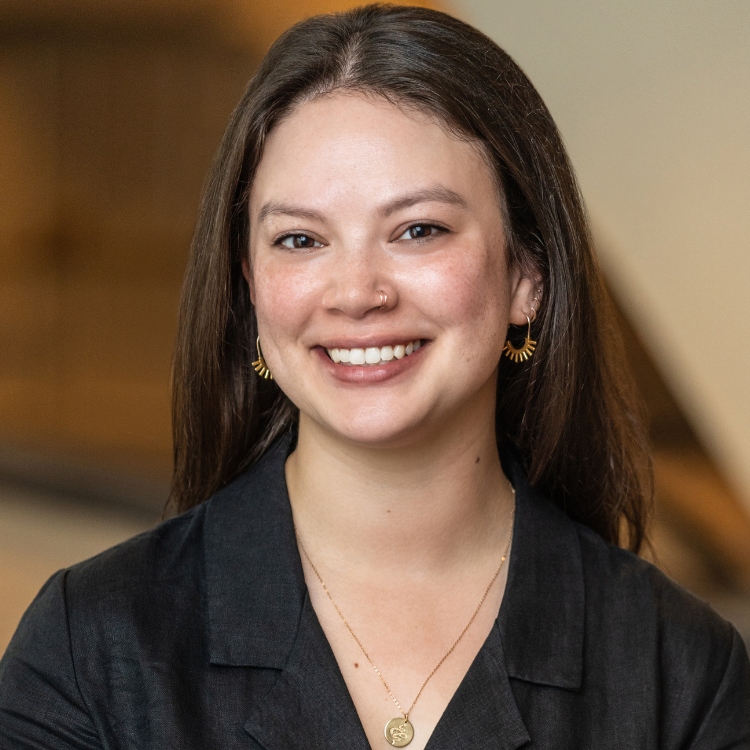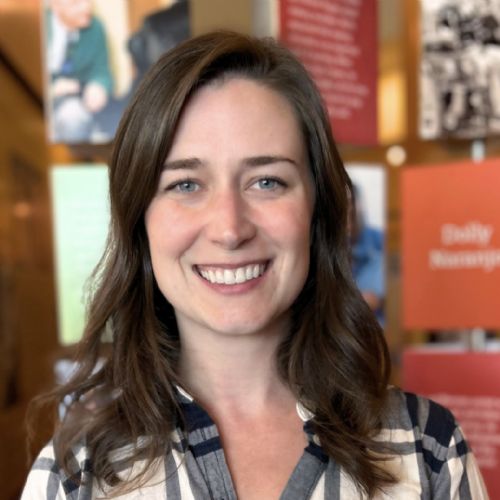Symposium Details

Join Us for the 2025 PA Child Abuse Prevention Symposium!
A dynamic virtual experience focused on protecting children and empowering families.
Hosted by Pennsylvania Family Support Alliance (PFSA), in partnership with the Pennsylvania Department of Human Services.
The annual PA Child Abuse Prevention Symposium is more than a conference — it’s a statewide gathering of professionals, advocates, and leaders working at the front lines of family support and child protection. This high-impact virtual event brings together expert voices, timely insights, and practical strategies to help you strengthen families and keep children safe across Pennsylvania.
Whether you work in child welfare, education, healthcare, the legal system, or community services — this symposium is designed for you.
What to Expect:
- Live expert presentations on today’s most pressing issues, from digital exploitation and family caregiving to perinatal substance use and protective factor frameworks.
- Actionable strategies to support families in real time, informed by emerging research and frontline experience.
- Engaging networking opportunities with peers and presenters from across the country, all from the convenience of your home or office.
Event Details:
- Event Theme — Protection, Practices, and the Power of Families
- Fully virtual via Zoom — attend from anywhere!
- Access every session live — no choosing between tracks.
- Earn professional credits — CEUs, CLEs, and ACT 48 hours available to all live attendees.
Can’t make it live?
Want just the recordings? A recording-only registration is available too — though please note that CEUs, CLEs, and ACT 48 credits are only awarded for live participation.
Whether you’re looking to stay ahead of emerging trends or expand your skillset, this symposium offers the insight, inspiration, and community you need.
Let’s protect boldly. Practice wisely. And champion the power of families together.
Sessions & Topics
This year’s symposium centers on the theme of vital connection between daily practices, protective strategies, and the enduring power of families to prevent child abuse and neglect. From grassroots caregiving to systems-level change, we’ll explore how intentional action creates a safer future for every child.
- Exposing the Crime Scene: Big Porn’s Exploitation of Children and Victims
- Building on Strengths: Using the Strengthening Families Protective Factors Framework to Guide our Work
- Enhancing Cross Sector Collaboration and Policy Capacity to Address Perinatal Substance Use Disorder
- The Value of Grandfamilies: Beyond What We Know
*See the ‘Sessions Descriptions’ tab for more details about each session topic and presenter.
Registration & Pricing
- Live (virtual) Attendance & Recording Access: $125
- Access to Recording-Only: $50
- CBCAP Network Member Discount: 10% discount when using discount code, which can be applied to either registration option
- Continuing Education Credits: All live attendance registrations include CEUs, CLEs, Act 48 credits.
*All sales are final, no refunds.
Timeline
- August 5, 2025: Registration Opens
- November 13, 2025: Access to Symposium Recording Made Available
*Please note that live (virtual) attendance is required to be eligible for any of the continuing education credit options. ‘Recording-Only’ registration permits viewing of the recorded sessions but is NOT eligible for any credits.
Symposium Agenda
Protection, Practices, and the Power of Families
| Time | Session Topic | Speaker |
|---|---|---|
| 10:00-10:10am | Welcome & Opening Remarks: Framing the Day | Justin Donofrio, PFSA |
| 10:10-11:10am | Exposing the Crime Scene: Big Porn’s Exploitation of Children and Victims | Laila Mickelwait, Justice Defense Fund |
| 11:10-11:20am | BREAK | ALL |
| 11:20-12:35pm | Building on Strengths: Using the Strengthening Families Protective Factors Framework to Guide our Work | Rijelle Kraft, Center for Schools and Communities |
| 12:35-1:00pm | LUNCH BREAK | ALL |
| 1:00-2:15pm | Enhancing Cross Sector Collaboration and Policy Capacity to Address Perinatal Substance Use Disorder | Ollie Kuo & Jess Simon, Association of Maternal & Child Health Programs (AMCHP) |
| 2:15-2:25pm | BREAK | ALL |
| 2:25-3:25pm | The Value of Grandfamilies: Beyond What We Know | Emma Swift Lee, Fred Rogers Institute |
| 3:25-3:30pm | Closing Remarks and Reminders | Justin Donofrio, PFSA |
Event Session Information
Protection, Practices, and the Power of Families
Exposing the Crime Scene: Big Porn’s Exploitation of Children and Victims
Time: 10:10am-11:10am
Speakers: Laila Mickelwait, Co-Founder and CEO, Justice Defense Fund
Summary: The Traffickinghub movement is a decentralized and diverse global effort to hold Pornhub accountable for enabling and profiting from mass sexual crime and implement policies that prevent criminal sexual abuse across the Internet. The Traffickinghub petition has been signed by over 2.3 million people from every country in the world. Over 600 organizations and hundreds of survivors have participated in the movement that resulted in Pornhub losing Visa, Mastercard, and Discover payment processing and being forced to take down 91% of the website by removing over 50 million images and videos, in what the Financial Times called “probably the biggest takedown of content in Internet history.”
During this session, Laila Mickelwait, national bestselling author of Takedown: Inside the Fight to Shut Down Pornhub for Child Abuse, Rape, and Sex Trafficking, will outline what led her on a fierce journey to take down Pornhub in an effort to protect others through a brief presentation followed by an interview conversation with PFSA.
Building on Strengths: Using the Strengthening Families Protective Factors Framework to Guide our Work
Time: 11:20am-12:35pm
Speaker: Rijelle Kraft, Family Support Managing Coordinator, Center for Schools and Communities
Summary: The Strengthening Families Protective Factors framework was developed in the early 2000s and identified five characteristics of families who thrived despite difficult circumstances. Family support professionals can use the framework as a guide to build strengths-based relationships and provide compassionate support that recognizes families as partners in creating environments where children thrive. Join this session to learn more about how the Center for the Study of Social Policy has expanded the meanings of and the research base for the five protective factors. We will review highlights and discuss what this means for your work with families.
Enhancing Cross Sector Collaboration and Policy Capacity to Address Perinatal Substance Use Disorder
Time: 1:00pm-2:15pm
Speakers: Ollie Kuo, Program Manager, Association of Maternal & Child Health Programs (AMCHP) Jess Simon, Assistant Professor, Health Policy and Management, UNC Gillings School of Global Public Health
Summary: Perinatal substance use disorders (SUD) present complex challenges that impact the health and wellbeing of both parents and infants, requiring coordinated, compassionate, and informed responses across systems. This session, led by the Association of Maternal & Child Health Programs (AMCHP), explores innovative, cross-sector approaches to supporting pregnant and postpartum individuals affected by SUD. By examining perinatal SUD through a systems thinking lens, participants will explore systems strengthening approaches and real-world examples of how public health, behavioral health, and community-based organizations can collaboratively address policy and programmatic challenges, prevent child abuse and maltreatment, and improve outcomes for families.
The Value of Grandfamilies: Beyond What We Know
Time: 2:25pm-3:25pm
Speaker: Emma Swift Lee, Director, Fred Rogers Institute
Summary: Across the country, millions of children are being raised by grandparents and other kinship caregivers—forming what are known as “grandfamilies.” These family structures, often formed through love, resilience, and necessity, hold immense value not only for the children they support but for the fabric of our communities. Yet, their contributions are often overlooked or underappreciated in systems of care and policy.
In this inspiring and informative session, Director of the Fred Rogers Institute, Emma Swift Lee, invites participants to look beyond common narratives and discover the deeper emotional, developmental, and societal significance of grandfamilies. Drawing from child development insights, lived experiences, and the legacy of Fred Rogers’ approach to caregiving, this session will highlight the unique strengths, challenges, and transformative impact of intergenerational caregiving.
PA Child Abuse Symposium Speakers
Protection, Practices, and the Power of Families

Laila Mickelwait is the Co-Founder and CEO of the Justice Defense Fund, the Founder and leader of the Traffickinghub movement supported by millions around the world, and the national bestselling author of Takedown: Inside the Fight to Shut Down Pornhub for Child Abuse, Rape, and Sex Trafficking (Pengiuin Random House, 2024). She has been researching and combating the injustice of sex trafficking since 2006 and is a leading expert in the field.
Laila received her Master of Public Diplomacy degree from the Annenberg School of Communications and the Dornsife School of International Relations at the University of Southern California in Los Angeles in conjunction with the U.S. Department of State. Her work has been featured in hundreds of news articles worldwide, in outlets such as The New York Times, The New Yorker, BBC News, The Times, CNN, Bloomberg, Reuters, AP, CNBC, Fox News, The Washington Post, USA Today, Newsweek, The New York Post, The Guardian, Business Insider, and many others.

Rijelle Kraft serves as the Family Support Managing Coordinator at the Center for Schools and Communities providing implementation support for Children’s Trust Fund grantees and Parents as Teachers affiliates. Rijelle develops and delivers professional development in strengths-based family support practices and is a certified instructor for Bringing the Protective Factors Framework to Life in Your Work, the Be Strong Parent Café model, and the Healthy Outcomes from Positive Experiences (HOPE) framework. Rijelle holds a bachelor’s degree in philosophy from Mansfield University, a master’s degree in social justice from The School for International Training, a master’s degree in nonprofit management from Eastern University and is a graduate of the Pennsylvania Educational Policy Fellowship Program. Rijelle lives in York, PA with her partner and menagerie of rescue pets.

Ollie (Olivia) Kuo, MPH serves a program manager on the Evidence & Implementation team at Association of Maternal & Child Health Program (AMCHP). In this role, she primarily coordinates the AMCHP’s Innovation Hub, including administration and promoting the growth of the MCH Innovations Database, creating and delivering training content for the Innovation Hub Learning Community, and coaching for the Innovation Hub Replication Projects. Ms. Kuo also works with the National MCH Workforce Development Center and the MCH Evidence Center to ensure alignment of tools and resources and to provide coaching and technical assistance to state teams. Ms. Kuo holds a Master of Public Health from the Gillings School of Global Public Health at the University of North Carolina at Chapel Hill.

Jessica Simon is an Assistant Professor in the Department of Health Policy and Management at the UNC Gillings School of Global Public Health, where she specializes in the application of systems thinking to strengthen maternal and child health and behavioral health systems. Previously, she served as a Systems Change Senior Specialist at the Association of Maternal & Child Health Programs (AMCHP). At Gillings, she co-leads the Systems Strengthening Hub for Public Health and the Systems Integration Core of the Maternal and Child Health Workforce Development Center. Her work bridges research, practice, and policy by facilitating cross-sector collaboration, workforce development, and systems-informed approaches to improving health outcomes. Simon holds a Master of Social Work with a concentration in Social and Economic Development and a certificate in System Dynamics from Washington University in St. Louis.

Emma Swift Lee is the Director of the Fred Rogers Institute at Saint Vincent College, where she works with educators and caregivers to support the interactions and relationships that help children grow and learn. Emma and her colleagues are continually learning from Fred Rogers’ legacy and practical scholarship in child development in order to develop professional learning and community building opportunities for children’s helpers. Before joining the Institute, Emma worked at the RAND Corporation as a Policy Analyst. Her work included research, evaluation, and technical assistance for projects in early childhood and K-12 education in both rural and urban settings. She holds an Ed.M. in Human Development and Psychology from Harvard University and a B.A. in Psychology from University of North Carolina at Chapel Hill.
Session Handouts
Protection, Practices, and the Power of Families
Session handouts will be available to registered participants during the day of the symposium event via Eventbrite.
Registered participants can access the Eventbrite registration webpage to view and/or download handouts for each presentation session. Access available on November 6, 2025
Virtual Event Attendee Resources
Protection, Practices, and the Power of Families
Continuing Education Units / Continuing Legal Education Credits
NOTE: Access to CEU, CLE, and ACT 48 credit request forms will be available after the Event concludes on November 6, 2025 via a follow up email from PFSA.
- Social workers, marriage and family therapists, and professional counselors can earn Continuing Education Units (CEU) at no additional cost.
- Attorneys can earn Continuing Legal Education (CLE) Credits at no additional cost.
- Pa educational professionals (K-12) can receive continuing education under ACT 48 at no additional cost.
Troubleshooting Assistance
If you experience issues accessing any information on this page, or connecting to the scheduled event sessions, please email [email protected], and include your name and contact information, so a staff member can quickly respond with assistance.

Join the CBCAP Network!
Overview: PFSA’s Community-Based Child Abuse Prevention (CBCAP) Network is a diverse network of local organizations, providing a wide range of prevention efforts and programs to anyone who may be in a parenting or caregiver role. This includes family centers, child advocacy centers, child welfare agencies, community support agencies, etc. These agencies are located statewide and receive a variety of resources and services from PFSA. Some of the primary benefits of joining PFSA’s CBCAP Network include:
- Resources for parents, caregivers, and families
- Training and development opportunities for staff and volunteers
- Prevention program offerings and implementation assistance
- Support for agency public relations
- 10% discount on materials and event registrations!
- Membership benefits for entire agency staff and volunteers
- And so much more!